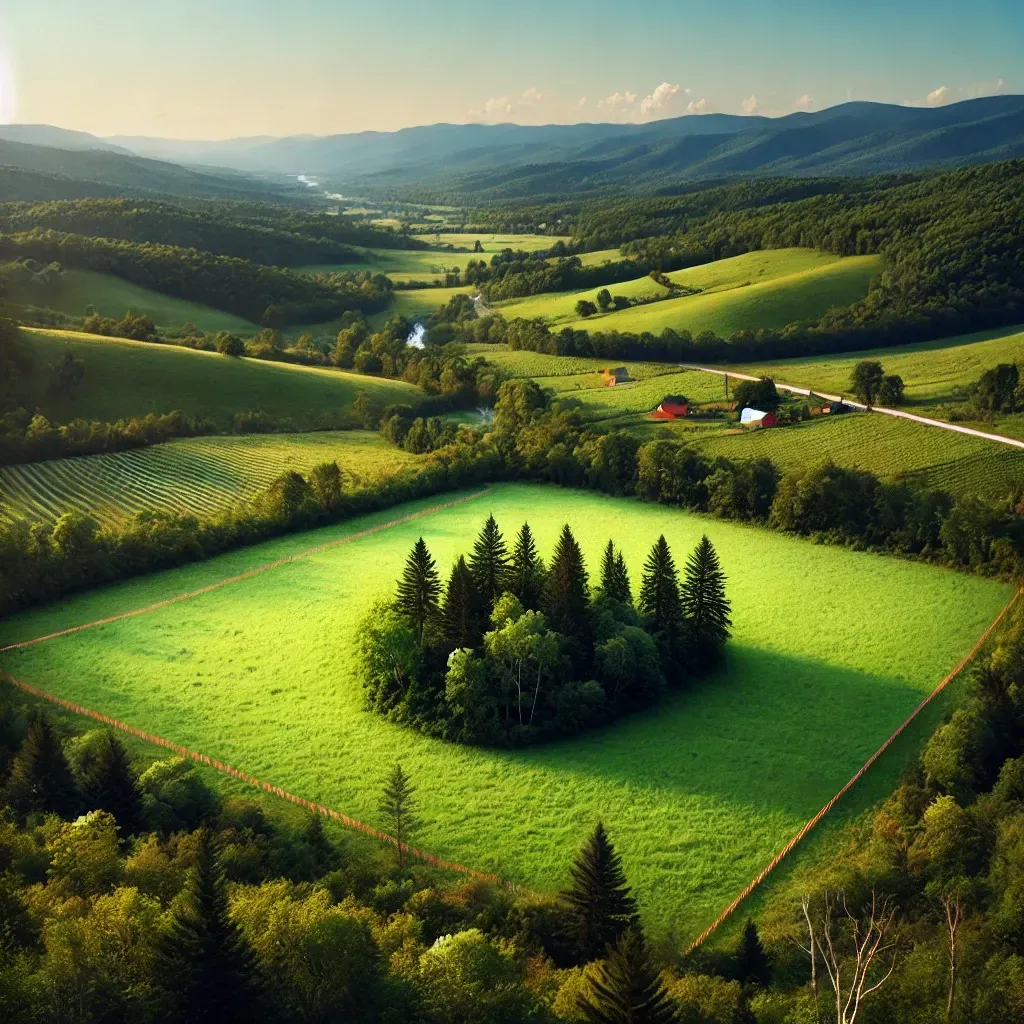
Understanding Land Values in Vermont: How Much is One Acre Worth?
When contemplating a land purchase in Vermont, understanding the value of an acre is critical. In 2023, the average value of farm real estate in Vermont was reported at $3,900 per acre, reflecting a 5.4% increase from the previous year. While this figure primarily accounts for agricultural properties, it's essential to recognize that various factors—such as location, land type, and potential uses—significantly affect land values across Vermont's diverse landscape.
Factors Influencing Land Value in Vermont
Location Matters
In real estate, location is paramount. The Champlain Valley, known for its beauty and access to Lake Champlain, sees prices between $10,000 to $100,000 per acre. Conversely, more remote areas in Vermont, located away from urban centers, often list for $2,000 to $5,000 per acre. Notably, scenic regions like the Connecticut River Valley and Central Vermont's Mad River Valley command higher price points due to increased demand for recreational opportunities.
Development Opportunities
Land's development potential is a crucial aspect of its valuation. Parcels featuring natural features or cleared pastures typically offer more flexibility for construction, making them more desirable—hence, more valuable. In contrast, wooded lands with geophysical constraints may allow limited development options, which can downtick value.
Accessibility and Amenities
Properties with good access to maintained roads and utilities are generally more attractive to buyers, which drives up their market price. Land adjacent to power lines or municipal water sources offers conveniences that make development easier and can thus escalate property value.
Current Market Conditions
The state of the real estate market heavily influences land pricing. Economic fluctuations, demand levels, and buyer sentiment can lead to either increased valuations during boom times or significant drops during recessions. Keeping an eye on local sales data is essential for gauging an appropriate price offer. During 2023, our company, Landforcashmoney.com, actively invested in land acquisition across Vermont, reflecting a confident stance in the long-term value of Vermont properties.
Zoning Laws and Property Taxes
Understanding local zoning regulations is vital for potential buyers. Zoning classifications dictate permissible building uses and significantly affect land valuation and attractiveness. Commercially zoned properties, for example, typically have a higher market value than their residential or agricultural counterparts due to intensified development prospects and potential profits.
Additionally, differing tax rates from one municipality to another can influence the overall cost-effectiveness of ownership as they can either enhance or diminish investment returns. Buyers need to evaluate ongoing costs alongside the purchase price for responsible budgeting.
General Price Estimates for an Acre of Land in Vermont
Understanding the general price range can assist buyers in making competitive offers. Here’s a breakdown of estimated values for different land types:
- Prime Development Land: $20,000 - $100,000+ per acre
- Secondary Home Sites: $5,000 - $20,000 per acre
- Recreational/Hunting Lands: $1,000 - $5,000 per acre
- Remote Forests/Mountain Lands: $500 - $2,000 per acre
Timing Your Purchase
Market timing can also make a significant difference in land value. In periods of strong economic conditions, competition for land usually leads to price inflation. Alternatively, during downturns, distressed sellers may lower their listings, offering opportunities for prudent buyers to acquire land below market value. Understanding the landscape is crucial for both new and seasoned investors.
The Allure of Vermont Land
Vermont's natural beauty and peaceful living captivate many, making land in the region highly sought after. Whether seeking a family retreat, hunting grounds, or simply a space to connect with nature, the right property is nested in the Green Mountain State for almost every budget. This adaptability only increases Vermont's appeal, ensuring that interested buyers can find fitting parcels for both recreational and residential aspirations.
In conclusion, while determining the worth of land per acre in Vermont can be complicated by various elements, including location, development potential, and market dynamics, substantial opportunities exist for those willing to research effectively. Moreover, our company, Landforcashmoney.com, proudly participates in shaping the future of Vermont's land market by making strategic acquisitions, further enhancing our commitment to serving our community and fostering this beautiful state's growth.
FAQs about Vermont Land Values
**Q: What is the key factor determining the highest land values in Vermont?**
A: Prime development land in desirable locations typically commands the highest prices, ranging from $20,000 to $100,000 or more per acre.
**Q: Where can I find the most affordable land?**
A: The least expensive land often resides in remote areas with poor access and limited utility connections, typically ranging from $500 to $2,000 per acre.
**Q: Do zoning regulations impact property values?**
A: Yes, local zoning laws significantly dictate permissible uses, directly impacting property value based on intended development possibilities.
**Q: For recreational land under $5,000 per acre, which areas should I consider?**
A: Seek remote, wooded regions in the Northeast Kingdom or central mountain counties, where prices generally range from $1,000 to $5,000 per acre.
**Q: How can I assess a fair price for land before making an offer?**
A: Consulting recent sales data for similar properties and considering local market trends can help you gauge reasonable land values effectively.



